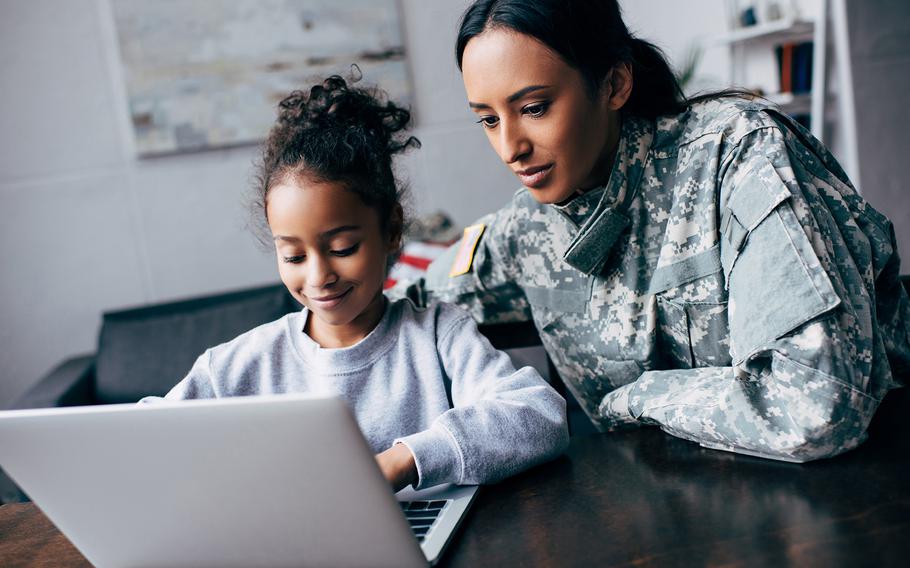
Homeschooling is a wonderful option for some, but it won’t work for every military family.. (iStock)
Having raised three children from birth to adulthood during my husband’s active duty service in the Navy, I know how difficult moving is for military children. Each of our three Navy brats experienced challenges integrating into different school curricula, landing back at the bottom in extracurricular activities, and fitting in -- or not fitting in -- with new social groups.
Recognizing these difficulties, the President issued the “Educational Freedom and Opportunity” order in January, stating “the Secretary of Defense shall review any available mechanisms under which military-connected families may use funds from the Department of Defense to attend schools of their choice, including private, faith-based or public charter schools.” The President ordered this to be done in time for the 2025-2026 school year.
In May, Secretary of Defense Pete Hegseth drilled down on one option not specifically mentioned in the President’s order: homeschooling. He ordered the DoD to review resources for homeschooling military parents, stating, “Homeschooling offers an individualized approach for students and highlights the significant role parents play in the educational process.” No other options were mentioned in Hegseth’s memo.
Military children move three times more than civilian peers, and military parents homeschool at double the rate of their civilian moms and dads as a way of mitigating educational instability. It makes good sense for the DoD to offer them more support. However, as I told my military spouse friends who were amazing homeschoolers, “I’d rather get hit in the head with a frying pan.” I wasn’t cut out for homeschooling. My son was smarter than me by age 5, my middle child was a master manipulator and my youngest shared my tendency to get distracted.
Instead, I worked hard to finding the best school options after each of our military moves.
Homeschooling isn’t for everyone, as evidenced by the fact that more than 80% of military children attend public and DoD schools. Then why is the Pentagon focused on reviewing resources for homeschoolers? What about “private, faith-based or public charter schools?”
Studies show that military children of all ages are at substantially higher risk for negative psychological, social and behavioral health outcomes than their civilian peers, with military adolescents at highest risk especially of suicidal thoughts and behaviors. The reasons are complex, but frequent PCS moves are a primary culprit.
While homeschooling is an excellent alternative for families aiming to stabilize their children’s educational curricula and maximize school success, it doesn’t eliminate psychosocial risks for military children who must move, especially teens for whom strong peer friendships and non-parental adult mentor relationships (coaches, teachers, etc.) are crucial for good mental well-being. Homeschoolers admit that they must be proactive to offer their children adequate peer-to-peer social opportunities, whereas children who attend schools naturally learn how to make, maintain and end friendships as needed.
Parents may believe that as long as they support their children through each move, they’ll be fine. In fact, research shows that friendship support, not family support, is the most important positive indicator of adolescent resilience, presently and later in life. Psychological experts conclude that deep, authentic adolescent friendships are crucial for adolescent development and lead to better outcomes in adulthood.
Parents shouldn’t feel hurt; it’s all very natural. Scientists say, like other mammals, adolescent humans instinctually seek peer relationships that they can depend on when they inevitably leave home. Subconsciously, peer relationships are “a matter of survival” to teens.
It follows that, if military families must move, and moving puts military children at risk, there no perfect solutions. This may be true, but the DoD should consider every alternative to help military children find the educational stability they desperately need, such as K12 and Time4Learning homeschooling programs; charter and magnet schools that give priority enrollment to military children; state open enrollment programs; state funding programs for private school choice; federal vouchers; and Orion Military Scholars program, which helps military teens enroll in U.S. boarding schools for uninterrupted high school experiences.
True “educational freedom” doesn’t exist for military families ordered to move. But with the new school year just around the corner, the DoD must act to make educational alternatives affordable, and finally give military families a choice in the matter.
Read more at themeatandpotatoesoflife.com and in Lisa’s book, “The Meat and Potatoes of Life: My True Lit Com.” Email: meatandpotatoesoflife@gmail.com